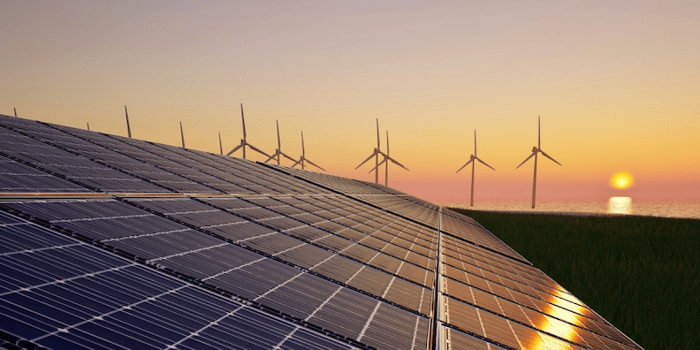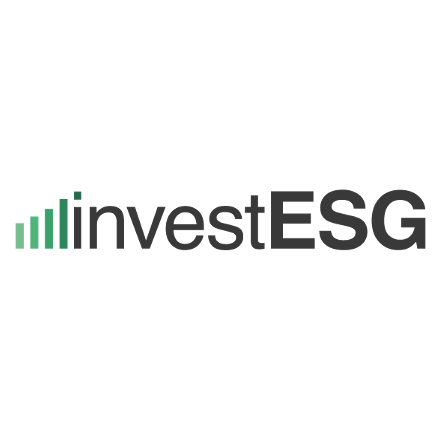Investors and asset managers need to get back to the fundamentals of the issues ESG covers.


Photo credit: Alexander Mils / Unsplash+
In an article published by Ophelie Mortier, Chief Sustainable Investment Officer at Degroof Petercam Asset Management already in April presents a differentiated perspective on ESG.The use of ESG criteria in investment is coming under fire, but integrating sustainability, in a way that makes sense, remains essential.
The subject of an ESG identity crisis has been discussed for some time. In 2022 the Economist even called for the S and G to be dropped, leaving only the E for emissions.
Today, the ‘crisis’ continues with the Trump administration’s climate scepticism. Europe is also waking up to the question of its defence capability which is consequently unsettling sustainable finance about whether armaments should be financed or not. With increasing global geopolitical tensions, whether due to threats to democracy or the economic crisis accentuated by an international trade war, where everyone will be on the losing side, short-term visions are being accentuated to the detriment of the long term, with green-blaming the ever-available joker if we run out of excuses for global problems.
And yet ESG is not dead - quite the contrary!
Provided we don't get bogged down in endless and sterile debates about semantics - responsible or sustainable, ESG or SRI, for example, but get back to basics. Instead, we need to get back to the fundamentals of the issues ESG covers.
E is for the environment, which encompasses issues such as climate, biodiversity and resource use.
If resource scarcity weren't still topical, would the oval office discussion regarding the Russia-Ukraine conflict - that went viral - about signing a contract for so-called critical minerals, have taken place?
Hasn’t the scarcity and globalisation of resources, with a shortage of essential elements for our production and consumption chains during the Covid crisis, highlighted the importance of the circular economy and the growing importance of the notion of recycling?
Moreover, examples of climate disruption are far from finished. Fires in Japan, Korea and Carolina have been raging in the last two months and droughts are already evident in Europe, while there has been flooding in Brazil.
The end of the energy transition?
In Australia, an agreement on solar batteries for a major foundry is changing the face of Australian energy.
And make no mistake the United States is well and truly continuing its transition. Despite discussions about tax credits for electric vehicles, the Trump administration is continuing to pay and is even allowing retroactive qualification.
The Texas Senate passed a bill to favour gas over renewables, even though renewables are proving their worth: Texas broke its solar, wind and battery records in one week.
The IEA's World Energy Report 2025, shows that 80% of the growth in global electricity generation will come from renewables and nuclear power, reaching over 40% of total generation, with renewables providing 32%.
The S of ESG is for social, which encompasses human rights and labour rights (covering the workforce and the supply chain), but also including the protection and health of customers in particular.
Current events are demonstrating the extent to which an economy cannot function if it does not have the right workforce to carry out its projects. Donald Trump's plans to reindustrialise the United States and stimulate American exports require a workforce, but there are already concerns about the lack of manpower. The story is the same in Europe. In Germany, for example, Euractiv reported on the shortage of skilled workers needed to ensure the energy transition. The almost global demographic of ageing populations coupled with nationalist backlash against immigration policies will only accentuate the issue of talent management and attracting qualified profiles.
The G in ESG stands for governance in the broadest sense - corruption, business ethics but also corporate governance, this includes the importance of the separation of powers between the board of directors and the executive committee, the protection of minority shareholders, etc. Does this resonate? Are the protests we are seeing related to the principles of common sense and sound governance - at all levels - being flouted?
ESG is not dead. This is the conclusion of a survey of more than 200 major investors in the United Kingdom, Europe and the United States.
According to the PRI's 2025 trends survey, signatories still see ESG as a source of value creation, long-term value, risk management and financial materiality.
As Ms Ribeira, the Executive Vice-President for a Clean, Just and Competitive Transition, said in a recent speech, going backwards is not the best way to address problems.
And yet the European Commission has gone backwards with its Omnibus simplification proposal. We have already discussed this (please read my blog or listen to the Sustainability Omnibus Podcast - available on the Green Central Banking website, Appleand Spotify). Simplifying regulation is excellent news. The tsunami of regulation that companies and investors have experienced over the last few years on sustainability has not helped to convince Europeans to act; quite the opposite, it has discouraged the most convinced, threatened the hesitant and helped opponents.
It is time to reaffirm our convictions and our values. It's time to rediscover integrating sustainability issues in a way that makes sense, for the benefit of stakeholders, investors and society. This is why it is essential that, when talking about regulatory simplification, the real issues are taken into account, for example, focusing on simplifying the requisite data, so that investors can fulfil their fiduciary duty to make the best investment decisions in terms of both risks and opportunities, rather than reducing the number of companies subject to transparency rules to almost zero.
Only by putting the real issues of double materiality, transparency and the relevance of data back on the table, can we invest in what needs to be done. The question is not how to raise funds, but rather how to invest. Savings accounts are still the safe-haven investment for many Europeans, and they need to be mobilised for the medium-term challenges of sustainability. This can only happen if we are able to enter into dialogue with economic players, in order to discuss a positive agenda for everyone. Attempts to prevent ESG issues from being raised on either side of the Atlantic are a clear threat to building the sustainable and fair transition that everyone is calling for.
Published by
 investESG
investESG
 investESG
investESG

